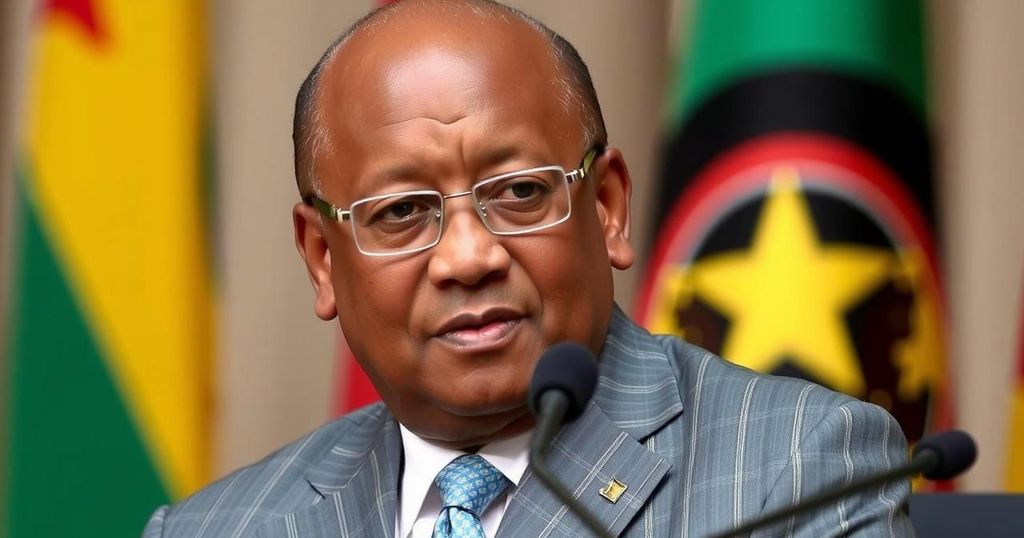John Mahama has been declared the president-elect of Ghana following the elections held on December 7, 2024. Mahama, representing the National Democratic Congress, won with 56.55% of the vote, defeating Dr. Mahamudu Bawumia of the New Patriotic Party. Additionally, Professor Naana Jane Opoku-Agyemang has made history by becoming the first female Vice President-elect of the country. The elections reflect a significant moment for Ghanaian democracy and leadership.
The recent presidential election in Ghana has concluded, resulting in the election of former President John Mahama as the president-elect. Mahama, representing the National Democratic Congress (NDC), secured a significant victory over other candidates in the December 7, 2024 election. Jean Mensa, the Chairperson of the Ghana Electoral Commission, announced Mahama’s victory in Accra. Mahama earned 6,328,397 votes, representing 56.55% of the valid votes, while his closest rival, Dr. Mahamudu Bawumia of the ruling New Patriotic Party (NPP), received 4,657,304 votes (41.61%). Despite results pending from nine constituencies, it was determined that these would not alter the overall outcome. A total of over 18 million voters participated in the election across 40,000 polling stations, marking a significant turnout. Following the official announcement, the NPP conceded defeat, with Bawumia publicly congratulating Mahama on his victory, who acknowledged this call via a social media post.
John Dramani Mahama, born on November 29, 1958, in Damongo, has a notable political history, having previously served as vice president and president before his recent election. He began his political career in 1996, becoming a member of parliament and subsequently holding various positions, including Minister for Communications and Vice President of Ghana. His re-election marks a continuation of his influence in Ghanaian politics, where he has made strides toward advocating for underprivileged communities.
Additionally, the election has also marked a significant milestone for gender representation, as Professor Naana Jane Opoku-Agyemang emerged as the first female Vice President-elect of Ghana. With a strong background in education, she served under Mahama’s previous administration as Minister for Education and now joins him in governance. As Ghana prepares for a new administration on January 7, 2025, Mahama and Opoku-Agyemang are set to lead the nation in addressing various political and socio-economic challenges ahead.
The recent Ghanaian presidential election, which took place on December 7, 2024, witnessed a historical moment with John Mahama being declared the president-elect. The election underscored the vibrant democratic processes in Ghana, showcasing a competitive political landscape involving significant voter turnout across various constituencies. This election has revitalized public interest in ongoing governance issues while also reflecting evolving leadership dynamics in the nation. Mahama’s victory poses important implications for future policies and political strategies, particularly in light of the recent socio-economic challenges faced by the country.
In conclusion, the election of John Mahama as the president-elect of Ghana marks a significant turning point in the nation’s political landscape. His victory over Mahamudu Bawumia of the NPP not only reinstates Mahama to a position of influence but also heralds the first female Vice President-elect, Professor Naana Jane Opoku-Agyemang. As Ghana prepares for the transition of power on January 7, 2025, the new administration will need to strategically address pressing national issues, ensuring continued progress in Ghana’s democratic journey.
Original Source: www.bbc.com






